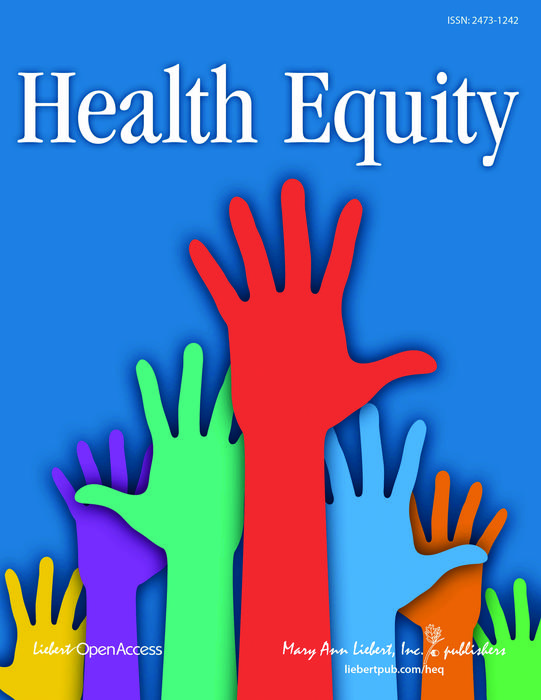New Rochelle, NY, June 20, 2024–The latest issue of the peer-reviewed journal Health Equity features a pivotal roundtable discussion titled “Implications and Insights on Federal Revisions to Race and Ethnicity Collection.” This roundtable assembles leading experts to explore newly revised race and ethnicity data collection standards from the Office of Management and Budget (OMB), highlighting the significant impact these changes have on policy and practice. The expanded standards now capture historically marginalized communities, who will now be visible in federal data for the first time. Click here to read the transcript.

Credit: Mary Ann Liebert, Inc.
New Rochelle, NY, June 20, 2024–The latest issue of the peer-reviewed journal Health Equity features a pivotal roundtable discussion titled “Implications and Insights on Federal Revisions to Race and Ethnicity Collection.” This roundtable assembles leading experts to explore newly revised race and ethnicity data collection standards from the Office of Management and Budget (OMB), highlighting the significant impact these changes have on policy and practice. The expanded standards now capture historically marginalized communities, who will now be visible in federal data for the first time. Click here to read the transcript.
Health equity cannot be advanced without data collection, analysis, reporting, and dissemination beyond the traditional racial and ethnic categories that have been the norm for the past 25 years. More precise and comprehensive data collecting from the use of these revised criteria may help academics, policymakers, and healthcare professionals more successfully identify and remedy injustices. As a result, resources and interventions can be directed to where they are needed most, especially to communities facing the greatest health challenges.
The moderator of the roundtable is Tina Kauh, Senior Program Officer in the Research-Evaluation-Learning Unit at the Robert Wood Johnson Foundation. The panelists include Meeta Anand, Senior Director of Census and Data Equity at The Leadership Conference on Civil and Human Rights and The Leadership Conference Education Fund; Maya Berry, Executive Director of the Arab American Institute; and Ninez Ponce, Director of the UCLA Center for Health Policy Research.
The participants discussed:
- How the revisions to the race and ethnicity data standards can contribute to a more accurate and nuanced understanding of demographic trends and inequities in society
- States that are already implementing these updated standards successfully
- Opportunities to work with the private sector on implementation
- What role should state or federal government agencies play in working with communities to make sure they understand and embrace the new race and ethnicity criteria.
About the Journal
Health Equity is a peer-reviewed open access journal that meets the urgent need for authoritative information about health disparities and health equity among vulnerable populations. With coverage ranging from translational research to prevention, diagnosis, treatment, and management of disease and illness, the Journal serves as a primary resource for organizations and individuals who serve these populations at the community, state, regional, tribal, and national levels. Complete information is available on the Health Equity website.
About the Publisher
Mary Ann Liebert, Inc. is a global media company dedicated to creating, curating, and delivering impactful peer-reviewed research and authoritative content services to advance the fields of biotechnology and the life sciences, specialized clinical medicine, and public health and policy. For complete information, please visit the Mary Ann Liebert, Inc. website.
Journal
Health Equity
Method of Research
Case study
Subject of Research
People
Article Title
Implications and Insights on Federal Revisions to Race and Ethnicity Data Collection
Article Publication Date
20-Jun-2024



